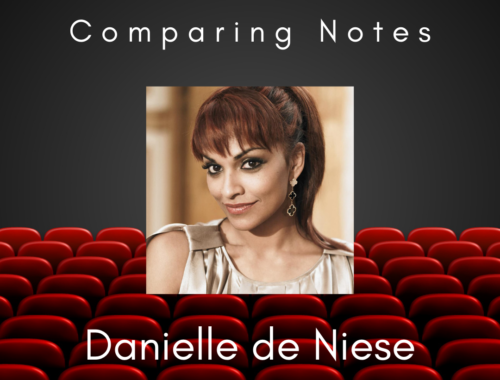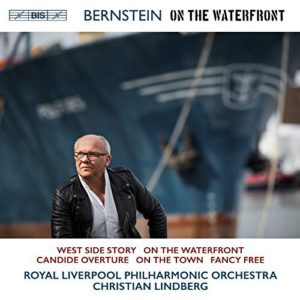GRAMOPHONE: From Where I Sit – June 2018
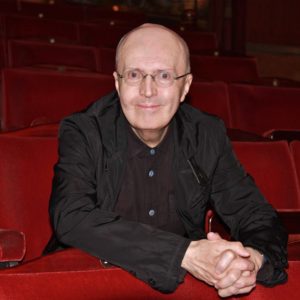 With the arrival of this column came the reinstatement of an important strand of repertoire in Gramophone’s pages – Musical Theatre. As I have argued for some time – in these pages and elsewhere – Music Theatre (to use the catch-all phrase) comes in many guises and to exclude any one of them on the basis that it veers too close to “pop” music is to deny the diversity of style and colour that makes it so special. The first cast album I reviewed for Gramophone was the Tony Award winner for 2017 Dear Evan Hansen, a dazzling score by Benj Pasek and Justin Paul belonging very much to the kinetic, high-tech, cyber world of today’s popular culture. What could be further removed from the orgy of tap dancing and lush Broadway melodies (Harry Warren) of the 1930s originated 42nd Street or the cool sophisticated period pastiche of Scott Frankel and Michael Korie’s War Paint inspired by the cosmetic wars between Helena Rubinstein and Elizabeth Arden.
With the arrival of this column came the reinstatement of an important strand of repertoire in Gramophone’s pages – Musical Theatre. As I have argued for some time – in these pages and elsewhere – Music Theatre (to use the catch-all phrase) comes in many guises and to exclude any one of them on the basis that it veers too close to “pop” music is to deny the diversity of style and colour that makes it so special. The first cast album I reviewed for Gramophone was the Tony Award winner for 2017 Dear Evan Hansen, a dazzling score by Benj Pasek and Justin Paul belonging very much to the kinetic, high-tech, cyber world of today’s popular culture. What could be further removed from the orgy of tap dancing and lush Broadway melodies (Harry Warren) of the 1930s originated 42nd Street or the cool sophisticated period pastiche of Scott Frankel and Michael Korie’s War Paint inspired by the cosmetic wars between Helena Rubinstein and Elizabeth Arden.
Our decision not to establish a separate category for these and other future show albums but rather to absorb them into the VOCAL section of the magazine was a deliberate one. Indeed you could argue that Jake Heggie’s “operas” It’s a Wonderful Life and Great Scott did not belong in the OPERA section. Their heritage and lineage comes directly from the Broadway musical albeit cast in a higher-flown through-sung mode of expression.
It’s an amazing time for diversity of style in “musicals” on both sides of the pond. Hamilton’s hip-hop, street poetry, storytelling, David Yazbek’s middle-eastern infused charmer The Band’s Visit, Jeanine Tesori’s Fun Home (newly arrived at London’s Young Vic while her dazzlingly original Caroline, Or Change plays at the Playhouse Theatre). These are shows, and scores, which dare to break through the “generic” sound world of contemporary show tunes and thoroughly inhabit a musical style and sound that springs directly (or obliquely) from the actual subject matter. Compare that to what is happening in the world of so-called contemporary opera where the musical language is so often at odds with the subject matter and where so many major commissions go to “the usual suspects” whose musical syntax we know all too well.
Why can’t opera houses great and small – and indeed subsidised theatres (I’ll exclude the commercial West End for now) introduce a note of diversity into their commissions and tap into the enormous array of talent on the other side of the music theatre tracks? I think of Conor Mitchell from Northern Ireland whose music knows no boundaries and whose innate theatricality defies labelling. In the last couple of years alone I’ve enjoyed a wealth of innovative music theatre (in workshops and beyond) from talented composers and lyricists who make their own style rules. Richard Taylor’s gloriously big-hearted Flowers for Mrs Harris gets a big Chichester platform this year; Tim Connor and Susannah Pearse’s The Stationmaster, Jason Carr and Ashley Robinson’s Lockhart, Darren Clarke and Rhys Jennings’ folk infused The Wicker Husband are still awaiting that elusive mainstream production. Time to throw open closed doors and welcome them to the larger music theatre family.
You May Also Like
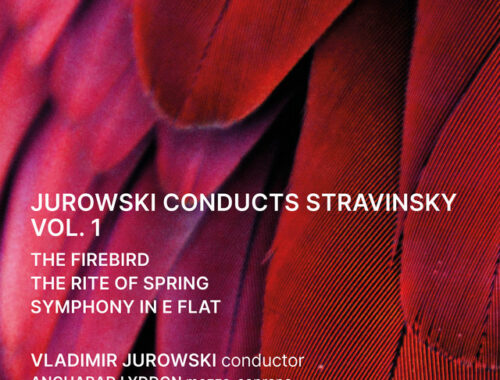
GRAMOPHONE Review: Jurowski Conducts Stravinsky Vol 1 – Angharad Lyddon, London Philharmonic Orchestra/Jurowski
02/10/2022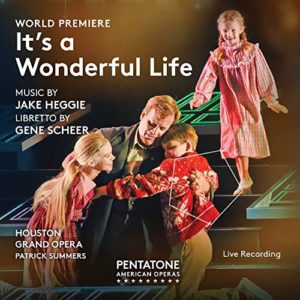
GRAMOPHONE Review: Heggie – It’s A Wonderful Life
06/12/2017